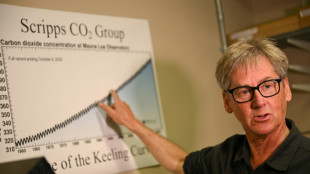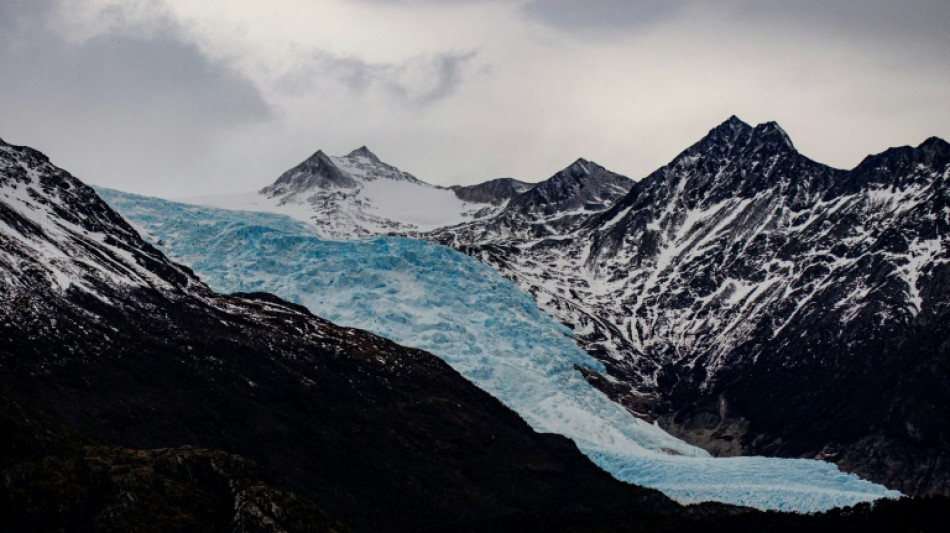
-
 A stadium and a jersey for Argentina's 'Captain' Francis
A stadium and a jersey for Argentina's 'Captain' Francis
-
New Trump task force vows to root out 'anti-Christian bias'

-
 Auto Shanghai showcases new EV era despite tariff speedbumps
Auto Shanghai showcases new EV era despite tariff speedbumps
-
Trump's administration moves to scrap artificial food dyes
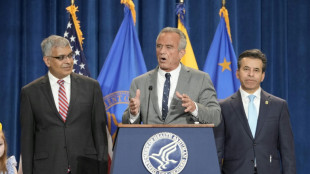
-
 Musk to reduce White House role as Tesla profits plunge
Musk to reduce White House role as Tesla profits plunge
-
US official backs off promise to solve cause of autism by September

-
 Guardiola joy as Man City go third after dramatic win over Villa
Guardiola joy as Man City go third after dramatic win over Villa
-
Trump says has 'no intention' of firing Fed chief
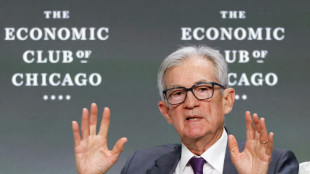
-
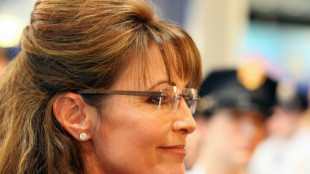 Jury finds New York Times did not libel Sarah Palin
Jury finds New York Times did not libel Sarah Palin
-
UN appoints envoy to assess aid for Palestinians

-
 Celtics star Tatum 'doubtful' for game two against Magic
Celtics star Tatum 'doubtful' for game two against Magic
-
Former England star Flintoff reveals mental battle after car crash

-
 Defending champion Korda chases first win of season at Chevron Championship
Defending champion Korda chases first win of season at Chevron Championship
-
Olmo fires Liga leaders Barca past Mallorca

-
 Nunes strikes at the death as Man City sink Villa to boost top-five bid
Nunes strikes at the death as Man City sink Villa to boost top-five bid
-
Tesla says profits plunge 71%, warns of 'changing political sentiment'
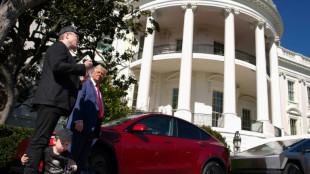
-
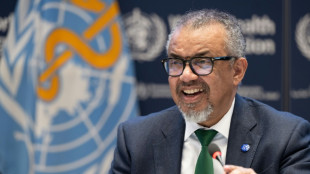 WHO announces 'significant' layoffs amid US funding cuts
WHO announces 'significant' layoffs amid US funding cuts
-
PSG draw with Nantes to stay unbeaten in Ligue 1

-
 Trump's administration moves to ban artificial food dyes
Trump's administration moves to ban artificial food dyes
-
Gunmen kill dozens of civilians in Kashmir tourist hotspot

-
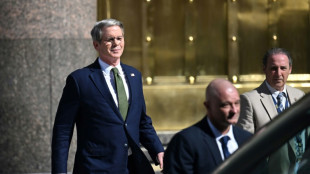 US Treasury chief expects China tariff impasse to de-escalate
US Treasury chief expects China tariff impasse to de-escalate
-
I.Coast opposition leader Thiam barred from presidential election
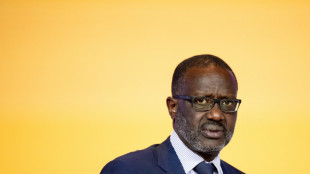
-
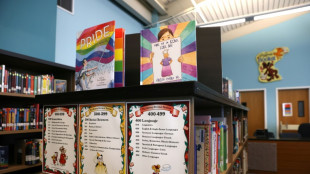 Top US court leans toward parents in case on LGBTQ books in schools
Top US court leans toward parents in case on LGBTQ books in schools
-
At least 24 killed in Kashmir attack on tourists

-
 Rahul powers Delhi to big win over Lucknow in IPL
Rahul powers Delhi to big win over Lucknow in IPL
-
Colombian cycling star 'Lucho' Herrera denies murder conspiracy

-
 Trump, Zelensky to attend Pope Francis's funeral Saturday
Trump, Zelensky to attend Pope Francis's funeral Saturday
-
US State Department to cut positions, rights offices
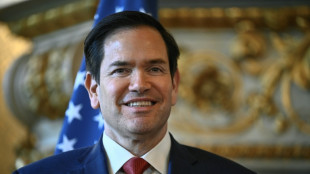
-
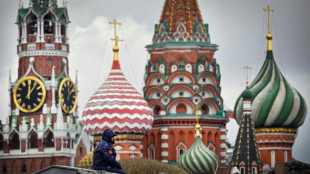 Ukraine ready for direct talks with Russia only after ceasefire: Zelensky
Ukraine ready for direct talks with Russia only after ceasefire: Zelensky
-
Myanmar Catholics mourn pope who remembered their plight

-
 Pope's Vatican 'family' pay tearful respects
Pope's Vatican 'family' pay tearful respects
-
The world leaders set to attend Pope Francis's funeral

-
 'Like a storm': Witnesses describe deadly Kashmir attack
'Like a storm': Witnesses describe deadly Kashmir attack
-
Volkswagen unveils its electric counter-offensive in China

-
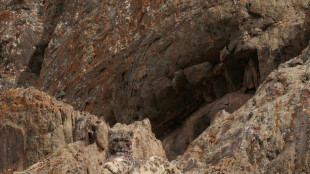 Landmark Nepal survey estimates nearly 400 elusive snow leopards
Landmark Nepal survey estimates nearly 400 elusive snow leopards
-
Napoleon letter auction recalls French pope detention

-
 Saka injury 'nothing serious' as Arteta weighs Arsenal options
Saka injury 'nothing serious' as Arteta weighs Arsenal options
-
Rubio to cut positions, rights offices at US State Department
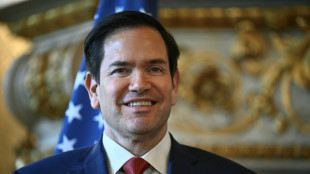
-
 Trump says 'on the same side of every issue' with Netanyahu after call
Trump says 'on the same side of every issue' with Netanyahu after call
-
ECB's Lagarde hopes Trump won't fire US Fed chief Powell
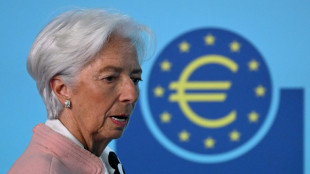
-
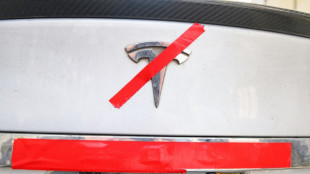 Gold hits record as Trump fuels Fed fears, Wall Street rebounds
Gold hits record as Trump fuels Fed fears, Wall Street rebounds
-
The world leaders set to attend Francis's funeral

-
 East Timor mourns Pope Francis months after emotional visit
East Timor mourns Pope Francis months after emotional visit
-
US envoy to visit Moscow as US pushes for ceasefire
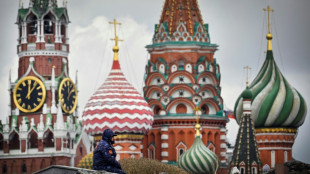
-
 At least 24 killed in Kashmir attack on tourists: Indian police source
At least 24 killed in Kashmir attack on tourists: Indian police source
-
Philippine typhoon victims remember day Pope Francis brought hope
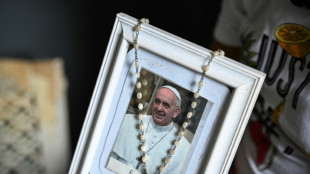
-
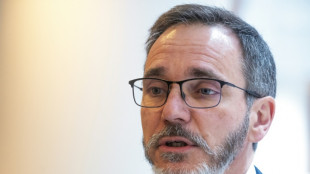 IMF slashes global growth outlook on impact of Trump tariffs
IMF slashes global growth outlook on impact of Trump tariffs
-
BASF exits Xinjiang ventures after Uyghur abuse reports

-
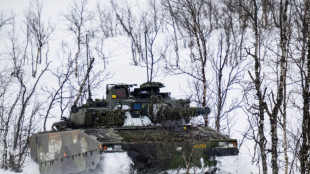 Nordics, Lithuania plan joint purchase of combat vehicles
Nordics, Lithuania plan joint purchase of combat vehicles
-
Gold hits record, stocks diverge as Trump fuels Fed fears
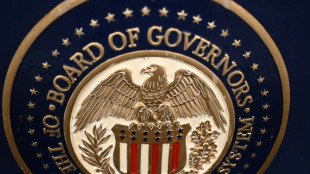

Half of world's glaciers expected to vanish by 2100: study
Half of the Earth's glaciers, notably smaller ones, are destined to disappear by the end of the century because of climate change, but limiting global warming could save others, according to a new study.
The findings, published in the journal Science on Thursday, provide the most comprehensive look so far at the future of the world's 215,000 glaciers.
The authors emphasized the importance of restricting greenhouse gas emissions to limit the consequences from glacier melt such as sea level rise and depletion of water resources.
To help orient policy makers, the study looked at the impact of four scenarios on glaciers, where global mean temperature change is 1.5 degrees Celsius (2.7 degrees Fahrenheit), 2.0C, 3.0C and 4.0C.
"Every degree increase produces more melt and loss," said Regine Hock of the University of Oslo and University of Alaska Fairbanks, a co-author of the study.
"But that also means if you reduce the temperature increase, you can also reduce that mass loss," Hock told AFP. "So in that sense, there is also a little bit of hope."
Even if global temperature rise is limited to 1.5C above pre-industrial levels -- the most ambitious goal of the Paris Agreement -- the researchers estimated that 49 percent of the world's glaciers would vanish by the year 2100.
That would represent about 26 percent of the world's glacier mass because the smallest glaciers would be those first impacted.
Global mean temperature is currently estimated to be increasing by 2.7C which would result in a near-complete loss of glaciers in Central Europe, Western Canada and the continental United States and New Zealand.
"Regions with relatively little ice like the European Alps, the Caucasus, the Andes, or the western US, they lose almost all the ice by the end of the century almost no matter what the emission scenario is," Hock said. "So those glaciers, they're more or less doomed."
- 'Up to the policy makers' -
Under the worst-case scenario -- global temperature rise of 4.0C -- giant glaciers such as those in Alaska would be more affected and 83 percent of glaciers would disappear by the end of the century.
Glacier loss would also exacerbate sea level rise.
"The glaciers that we are studying are only one percent of all ice on Earth," said Hock, "much less than the Greenland ice sheet and the Antarctic ice sheet.
"But they have contributed to sea level rise almost just as much as the Greenland and Antarctic ice sheet together in the last three decades," she said.
Warming of 1.5C would lead to an increase in average sea levels of nine centimeters while temperatures 4.0C higher would cause 15 centimeters of sea level rise.
"It doesn't sound very much, nine centimeters up to 15 centimeters," Hock said, "but it's not global sea level that is that much of a concern.
"It's mostly associated storm surges," she said, which have the potential to cause "a lot more damage."
The disappearance of glaciers will also have an impact on water resources because they provide freshwater for some two billion people.
"The glaciers compensate for the loss of water in summer when it's not raining much and it's hot," Hock said.
The study's projections, which are more pessimistic than those of UN climate experts, were reached through observations of the mass of each glacier through the decades and computer simulations.
Despite the alarming findings, Hock said "it is possible to reduce the mass loss by human action.
"If it happens is of course a different question," she said. "If that happens is of course up to the policy makers."
O.Lorenz--BTB

